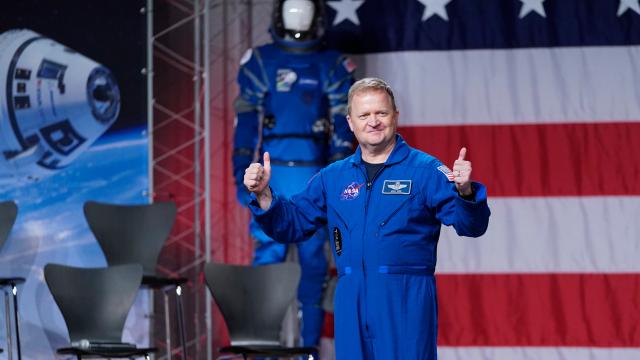NASA has pulled astronaut Eric Boe, who was scheduled as a crew member for the first manned test flight of Boeing’s Boeing CST-100 Starliner crew capsule in the second half of 2019, as he “is unable to fly due to medical reasons, the space agency said in a statement on Tuesday.
Instead, he will be replaced by 22-year veteran astronaut E. Michael “Mike” Fincke, a former Air Force colonel with three flights to space under his belt, including stints on the Space Shuttle Endeavour and as the commander of the International Space Station.
“Fincke takes the place of astronaut Eric Boe, originally assigned to the mission in August 2018,” NASA wrote. “Boe is unable to fly due to medical reasons; he will replace Fincke as the assistant to the chief for commercial crew in the astronaut office at NASA’s Johnson Space Center.”
Fincke “previously served as an International Space Station flight engineer and science officer on Expedition 9, and commanded the station on Expedition 18,” NASA added. “He returned as a mission specialist for the STS-134 crew on space shuttle Endeavour’s final mission. So far, the Pennsylvania native has spent 382 days in space and performed nine spacewalks.”
#OTD in 2004, Father’s Day came early for @AstroIronMike – on #ISS when his daughter was born http://t.co/eiUl15mgY4 pic.twitter.com/X28nO7msT1
— NASA History Office (@NASAhistory) June 18, 2015
According to Space.com, Fincke has extensive experience working with NASA’s commercial crew partners, including Boeing and rival SpaceX. The two other crew members scheduled to fly in the Starliner — NASA astronaut Nicole Aunapu Mann and Boeing’s Chris Ferguson, who left NASA in 2011 and has worked with the company ever since—have not been changed.
Crew changes (including last-minute ones) are not unusual at NASA, which usually gives only a small amount of information as to why such decisions are made. NASA astronaut Jeanette Epps, who would have been the first African-American to serve as a longterm crew member on the ISS, said last year she had been left in the dark for months as to why she was pulled off her mission.
In October 2018, Epps said the experience was “really a bad thing that happened” and that her removal “was for reasons I don’t really understand at this point.”
Boeing and SpaceX, which is working to convert its own Dragon cargo capsule to carry crew, are in a race to see which company will be the first private entity to send humans into space. Both companies must first go through a successful, uncrewed test flight to dock with the ISS first, with SpaceX’s scheduled for no earlier than February and Boeing’s scheduled for March. SpaceX’s crewed launch is scheduled for June and Boeing’s for August, but the program has repeatedly hit delays (both companies’ spacecraft were originally intended to be ready by 2017).
Timetables for their readiness could thus change if the craft aren’t ready for their test dates or something goes wrong. SpaceX—which has a lot on its hands right now with its Big Falcon Rocket/“Starship” program—recently announced it would be laying off 10 per cent of its staff.
The U.S. has bought seats to the ISS on Soyuz rockets operated by Russia’s Roscosmos space agency since 2011, when it retired the venerable space shuttle. But the clock is ticking, and NASA’s contract to send passengers on the Soyuz expires in November 2019.
